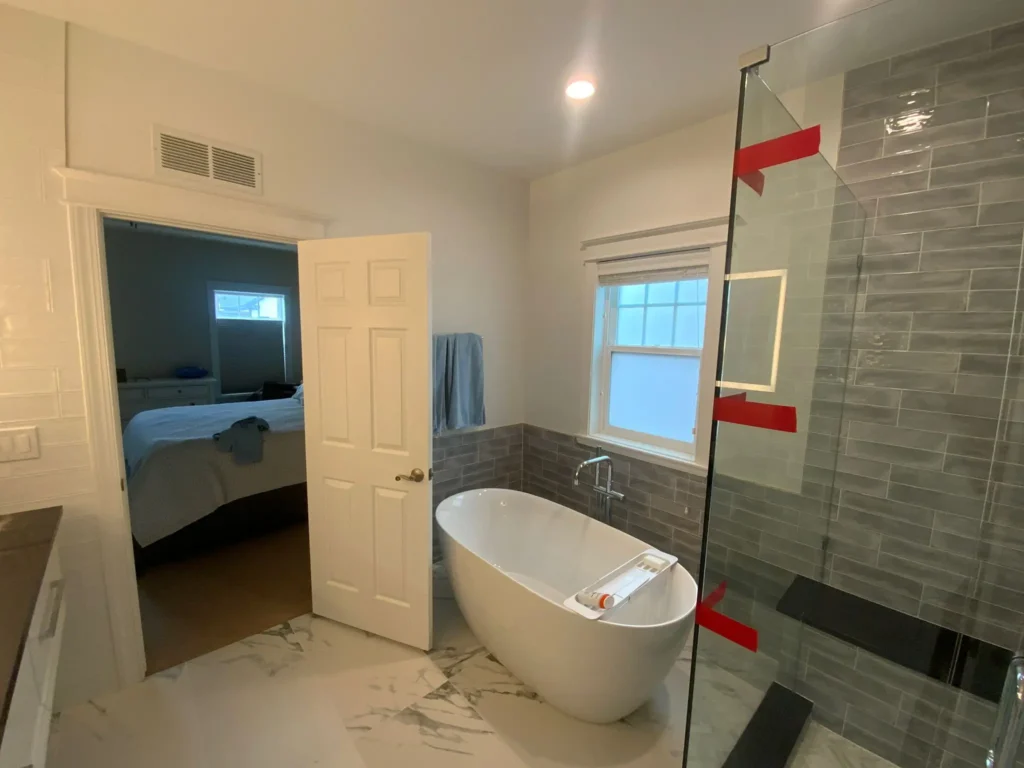Commercial Renovation Timelines: What To Expect (Without Losing Your Mind)
Okay, let’s talk commercial renovations. Ever feel like you’re signing up for a time warp? One minute you’re excitedly planning your chic new cafe layout or sleek office upgrade, the next you’re wondering if the construction crew has discovered a hidden dimension where calendars don’t apply. We get it. At Verified Builders right here in Denver, we’ve navigated more timelines than we’ve had cups of coffee (and that’s saying something!). So, let’s cut through the noise and talk realistically about what to expect.

Why Timelines Feel Like Guesswork (Spoiler: They Aren’t Supposed To Be)
First things first: commercial projects are NOT like home remodeling. Sorry to burst the bubble if you thought slapping on some paint and calling it a day would work. Think permits from the city that move slower than molasses in January, structural changes needing engineer sign-offs, and coordinating with vendors whose idea of “urgent” might differ from yours. It’s complex! The biggest mistake? Assuming it’ll be quick because your neighbor’s bathroom remodeling project only took three weeks. Commercial is a whole different beast.
The Big Factors That Dictate Your Timeline
So, what actually determines if your project takes 3 months or 9? Let’s break it down:
- Scope & Complexity: Are we talking a simple cosmetic refresh (new floors, paint, lighting) or a full gut job with re-routed plumbing, electrical, and structural changes? A custom remodels vision for a high-end restaurant kitchen? Yeah, complexity adds time. Obviously.
- The Almighty Permit Process: Denver (and any city, really) has its own rhythm. Simple interior updates might sail through. Anything involving occupancy changes, signage, fire suppression, or structural work? Buckle up. This phase alone can add weeks or months. We’ve seen projects delayed simply waiting for that magic stamp.
- Design Finalization: How buttoned-up are your plans before swinging the first hammer? Constant design tweaks mid-construction are the ultimate timeline killers. Get those decisions locked down early!
- Material Availability: Remember the supply chain chaos? While it’s better, specialty items, custom finishes, or even specific HVAC units can still have lead times that surprise you. Ordering early is non-negotiable.
- Your Contractor’s Bandwidth & Skill: Hiring the nearest handyman who mostly does basement remodeling for a complex commercial fit-out? Risky. A seasoned general contractor specializing in commercial work (like, ahem, Verified Builders) has the crew, subs, and project management chops to keep things flowing. Reviews matter here – check them thoroughly!
- The Unforeseen (aka “Surprise!”) Factor: Opening a wall to find knob-and-tube wiring? Discovering asbestos in the ceiling tiles? Needing unexpected structural reinforcements? Older buildings love these party tricks. A good contractor builds contingency time and budget for this stuff.
Typical Timeline Breakdown: The Phases
Think of a renovation like a play with distinct acts:
- Pre-Construction & Design (1-3+ Months): This is where the magic (and the foundation) happens. Finalizing designs, engineering, pulling permits, ordering long-lead items. Rushing this? Guaranteed delays later. FYI, skipping this planning depth is why some projects go off the rails fast.
- Demolition & Rough-Ins (1-4 Weeks): The noisy, dusty part! Clearing out the old, then getting the skeleton ready (framing, electrical, plumbing, HVAC rough-ins). Speed here depends on the demo scope and how cooperative the existing structure is.
- Insulation, Drywall & Mechanical Trim-Outs (2-6 Weeks): Closing up the walls, installing insulation, hanging drywall, mudding/taping, then finishing the electrical/plumbing/HVAC connections. This phase makes it start look like a space again.
- Finishes & Fixtures (3-8+ Weeks): The fun (and detail-intensive) part: flooring, painting, cabinetry, countertops, lighting fixtures, plumbing fixtures, specialty equipment installs (like commercial kitchens or AV systems). IMO, this phase feels slow because you see it happening daily, but precision takes time.
- Final Inspections, Punch List & Occupancy (1-3 Weeks): Getting the official city sign-offs, addressing any final tweaks (the punch list), deep cleaning, and finally… moving in! Don’t underestimate the inspection scheduling dance.
So, How Long Will MY Project Actually Take? (The Real Talk Table)
Okay, enough theory. Let’s get concrete. These are average ranges based on our Denver experience. Remember, your custom remodels vision or unique building quirks will adjust this:
| Project Type | Typical Scope | Average Timeline Range | Key Influencing Factors |
|---|---|---|---|
| Small Interior Refresh | Paint, flooring, basic lighting, minor millwork. | 4 – 8 Weeks | Simplicity, minimal permits, readily available materials. |
| Office Tenant Improvement | Demoing existing layout, new walls, lighting, HVAC upgrades, finishes. | 3 – 6 Months | Size, complexity of MEP (mechanical/electrical/plumbing), permit depth, design changes. |
| Retail Store Build-Out | Full interior build-out, custom fixtures, signage, POS, lighting. | 4 – 8 Months | Fixture complexity, specialty lighting, security systems, signage permits. |
| Restaurant/Cafe Renovation | Kitchen hood/ventilation, plumbing/gas lines, dining finishes, restrooms. | 6 – 12+ Months | Health dept. permits, specialized equipment lead times, grease interceptor installs. |
| Medical/Clinic Renovation | Compliance updates (HIPAA, ADA), specialized plumbing, cabinetry. | 5 – 10 Months | Strict code requirements, specialized vendor coordination, infection control protocols. |
| Full Building Repositioning | Major structural, facade, core systems, multiple tenant spaces. | 12 – 24+ Months | Phasing complexity, extensive permitting, coordination of multiple trades/subsystems. |
Why Choosing Verified Builders Makes Your Timeline (and Life) Smoother
Look, any remodeling company can promise the moon. But managing a realistic timeline for a complex commercial project? That’s where the rubber meets the road. Here’s why partnering with a Denver-focused general contractor like us matters:
- Denver-Specific Savvy: We know the permit departments, the inspectors, the local codes (inside and out), and the best local suppliers. This isn’t generic knowledge; it’s hyper-local efficiency. No reinventing the wheel for every project.
- Proactive Problem Solvers: Surprise asbestos at 3 PM on a Friday? We’ve seen it. Our experienced project managers don’t panic; they have vetted basement contractors, bathroom renovation contractor partners (yes, even commercial restrooms need specialists!), and solutions ready to roll, minimizing downtime. Finding reliable basement remodel contractor pros or home addition contractor teams for specific tasks is part of our network.
- Communication is King (Not an Afterthought): We don’t ghost you. You get regular updates – the good, the bad, the “we need a decision by Tuesday.” Transparency builds trust and keeps everyone on the same page. Check our reviews; clients consistently mention this.
- We Respect Your Time (and Budget): Padding timelines excessively is just as bad as underestimating. We provide realistic schedules upfront and work fiercely to stick to them, protecting your investment and opening date. Whether it’s luxury home renovations (we do those too!) or a bustling retail space, timelines matter.
Top Tips to Avoid Becoming a Timeline Horror Story
Want to be the client whose project finishes on time? Be this person:
- Invest Heavily in Planning: Finalize designs, specs, and materials before demolition starts. Seriously. This is the #1 controllable factor.
- Be Decisive: Indecision is the arch-nemesis of deadlines. Approve samples, layouts, and change orders promptly.
- Budget for the Unseen: Allocate at least 10-15% contingency for surprises. They will happen.
- Hire the RIGHT Pro: Don’t just search “home renovation contractor near me” and pick the closest. Look for proven commercial experience, strong reviews, and a portfolio of similar projects. Ask specifically about their timeline management process. Finding the nearest isn’t always best; finding the right is crucial.
- Communicate Clearly & Consistently: Establish a single point of contact and regular update rhythm with your general contractor.
Wrapping Up: Realistic Expectations = Less Stress
Commercial renovation timelines aren’t magic. They’re a product of planning, expertise, complexity, and a dash of luck. The key is going in with eyes wide open, partnering with a remodeling company that knows its stuff (like Verified Builders – hint, hint!), and being an engaged, decisive client.
Feeling overwhelmed or just want a realistic timeline estimate for your Denver project? Don’t gamble with your opening date or sanity. Give Verified Builders a call today. Let’s chat about your vision, the realities of your space, and how we can build something amazing together – on a schedule that actually makes sense. 🙂
FAQs: Your Commercial Reno Timeline Questions, Answered
-
Q: Can weather really delay my indoor commercial renovation?
A: Unfortunately, yes! While the main work is inside, deliveries can be delayed by severe weather. More critically, if your project requires any exterior work (roofing, facade changes, loading dock updates), weather is a major factor, especially in Denver seasons. A good contractor plans for seasonal risks. -
Q: How much can I personally do to speed up the process?
A: A LOT! Your biggest impacts are: 1) Being decisive and providing timely approvals/answers. 2) Securing financing upfront without delays. 3) Ensuring clear access to the site for workers and deliveries. 4) Communicating needs/changes clearly through the designated channel (usually your project manager). Being organized and responsive is huge. -
Q: Is it cheaper to hire separate contractors (like a plumber and electrician) myself instead of a general contractor?
A: Short-term, maybe seemingly cheaper per trade. Long-term? Almost always more expensive and slower. A general contractor like Verified Builders manages the entire sequence, prevents costly rework (e.g., the electrician boxing out the plumber), handles all permits and inspections, negotiates better material pricing, and bears the scheduling burden. Trying to GC a commercial project yourself, especially without deep experience, is a recipe for blown budgets and massive delays. The coordination headache alone isn’t worth the perceived savings. :/


